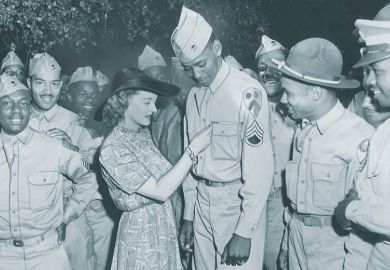Authors: Chris Atton and James F. Hamilton
Edition: First
Publisher: SAGE Publications
Pages: 192
Price: £60.00 and £19.99
ISBN: 9781412947022 and 7039
Writing a book about alternative journalism is like dancing while shaving. It is possible, but dangerous. Chris Atton and James Hamilton have created a provocative, inspiring and challenging intervention in both journalism and media studies. This is the first academic book-length study of alternative journalism and questions the type of writing that can be created outside "mainstream" media organisations.
It is an edgy text that the authors realise "would have been unlikely to find a publisher even a few years ago". The committed international scholars in alternative media studies have created opportunities for diverse and defiant voices to express arguments beyond the easy categories of "active audiences" and "participatory cultures". There is a considered dialogue between the journalist as writer and journalist as activist, probing the function of expertise and authority. Most impressively - and demonstrating great intellectual generosity - they dialogue with Raymond Williams' scholarship, providing a scaffolding to understand the relationship between popular culture and popular radicalism.
Atton and Hamilton probe the links between alternative journalism, citizen journalism, citizen media, community media, democratic media, emancipatory media and social movement media. They offer a mixed platform investigation of "radical content", including newspapers, magazines, radio, podcasts, blogs, social-networking sites, fanzines, graffiti, independent publishing and music production. They show the complex organisational practices in alternative media institutions. Atton and Hamilton demonstrate that the non-professional experience and expertise of alternative e-journalists hampers the form and content produced by these amateur writers. The sustainability of such practices is questioned. Most blogs are dead blogs. Most podcasts are irregularly released.
This book is defiantly international, with attention to diverse national experiences and case studies. Similarly, the readership of this book will be unusually expansive: from the brightest of first-year students through to the most politically aware of doctoral candidates. For academic staff, Alternative Journalism is the rare book that services students as much as scholars. It widens the trajectory of media studies and creates different modes of reading, writing and thinking.
Writing a textbook is tough. Writing a textbook that enables the development of new knowledge is rare and important. Alternative Journalism is inspiring. It offers an alternative history beyond the tales of great men, great newspapers, great editors and great technologies. It adds value and content to overused and ambiguous words such as "community" and "citizenship" and captures the spark of new information environments.
Who is it for? Undergraduates requiring motivation, and postgraduates and staff requiring application of their ideas.
Presentation: This is a well written, carefully constructed and passionate text. It is easy on the eye and challenging to the mind.
Would you recommend it? As soon as I finish this review, I will add it to my study guides.
Register to continue
Why register?
- Registration is free and only takes a moment
- Once registered, you can read 3 articles a month
- Sign up for our newsletter
Subscribe
Or subscribe for unlimited access to:
- Unlimited access to news, views, insights & reviews
- Digital editions
- Digital access to THE’s university and college rankings analysis
Already registered or a current subscriber? Login



